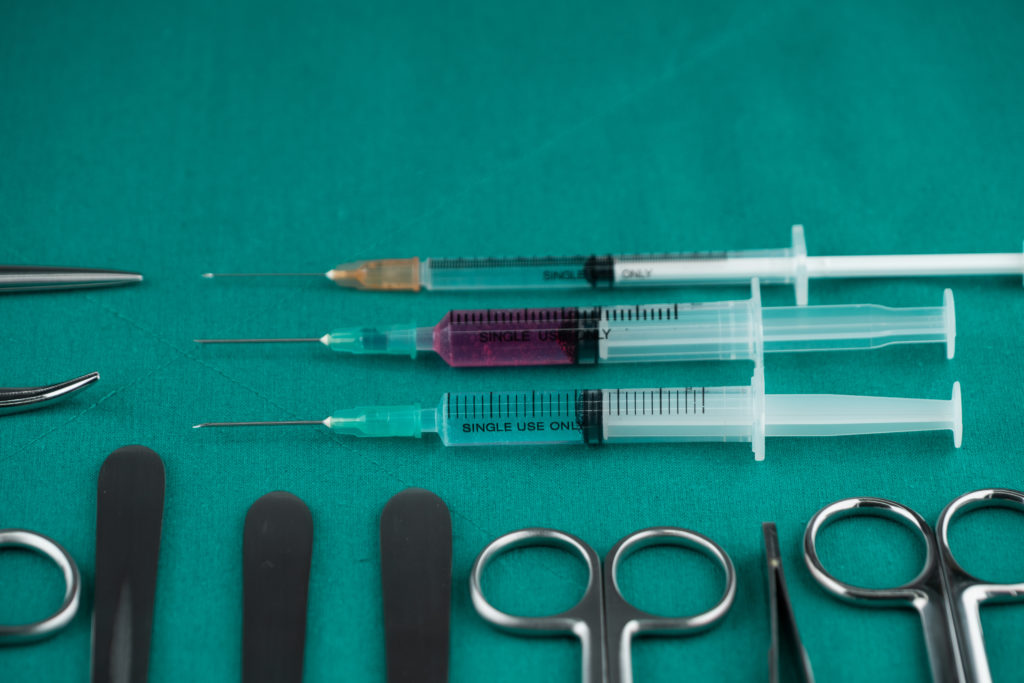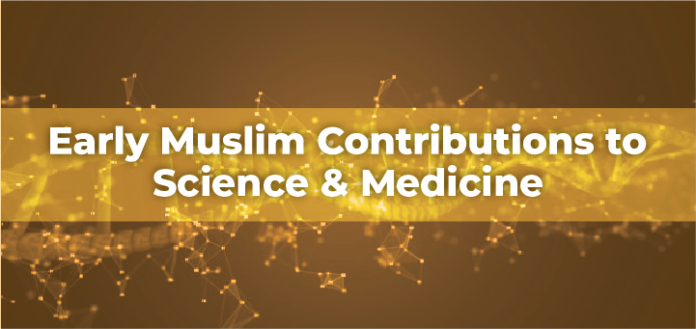The Golden Age of Muslim Civilization
Muslims in the past have enjoyed an esteemed position in the field of the science of Medicine by writing medical books on both modern and Islamic medicine. that are still in use by professionals today. Unfortunately, in the present, we have observed the West making significant progress in all fields; whether it be science, medicine, or technology.
It’s time we realize that this was not always the case. Muslims played a major role in the medicinal discoveries in the past and we still hold the potential to advance in this field. As Muslims, our religion also encourages the pursuit of knowledge, innovation, and scientific discoveries.
يَا أَيُّهَا الَّذِينَ آمَنُوا إِذَا قِيلَ لَكُمْ تَفَسَّحُوا فِي الْمَجَالِسِ فَافْسَحُوا يَفْسَحِ اللَّهُ لَكُمْ ۖ وَإِذَا قِيلَ انشُزُوا فَانشُزُوا يَرْفَعِ اللَّهُ الَّذِينَ آمَنُوا مِنكُمْ وَالَّذِينَ أُوتُوا الْعِلْمَ دَرَجَاتٍ ۚ وَاللَّهُ بِمَا تَعْمَلُونَ خَبِيرٌ – 58:11
O you who have believed, when you are told, “Space yourselves” in assemblies, then make space; Allah will make space for you. And when you are told, “Arise,” then arise; Allah will raise those who have believed among you and those who were given knowledge, by degrees. And Allah is Acquainted with what you do.
It was in the seventh century after the spread of Islam that Muslims expanded the horizons of medicinal discoveries and published many medical books. Our beloved Prophet (SAW) clearly mentioned how there was no disease created without a cure. In fact, the Holy Prophet (PBUH) also highlighted some treatments for different ailments and diseases in his Sunnah. It was just up to us to find a solution.
مَا أَنْزَلَ اللَّهُ دَاءً إِلاَّ أَنْزَلَ لَهُ شِفَاءً
The Prophet (ﷺ) said, “There is no disease that Allah has created, except that He also has created its treatment.”
Here we will present an overview of some notable Muslim names and their respective contributions that are part of the history of Islam.
Ibn Sina: A revolution of medicine with “canon”
Ali Ib Sina also known as “Avicenna” in Latin is remembered for his valuable contributions in philosophy and medicine.

Here we will make mention of his medical book “Al-Qanun” or the “The Canon of Medicine” which was translated into Latin and was employed in the esteemed medical universities of Europe till the end of the seventeenth century.
His work in terms of bladder diseases was widely used by other physicians for the diagnosis of both kidney and bladder diseases. He was also of the opinion that blood diseases and other issues may be responsible for haematuria other than issues of the urinary system as previously believed.
He also improved the process of catheterization. He invented new catheters with rounded tips and side holes. He specifically advised against the user of catheters in case of inflammation as he believed it would have adverse effects on the already existing swellings and pains. He came up with new improved ways of making tablets for the treatment of heart ailments.
Ab Al Qasim Khalaf Ibn Al-Zahrawi: Kitab Al Tasrif
If it wasn’t for the Muslim surgeons and physicians of the past that pioneered various surgical procedures and invented advanced surgical instruments, perhaps today the field of surgery wouldn’t be where it is today. Abu al-Qasim Khalaf ibn al-‘Abbas al-Zahrawi, known as the “father of surgery”, wrote the medical book Kitab al-Tasrif, and is worth mentioning in this regard.
His improved surgeries can be accounted for a lower mortality rate, especially concerning kidney stone removal. He started the standard procedure of marking the patient’s body before making any sort of incision and adopted pain-reducing methods like the use of cold sponges. He also invented tools like syringes, forceps, bone saws, and plaster casts, and his discoveries were recorded in multiple medical books.

Al Mawsili: 10th Century Physician
The modern treatment for cataracts has been attributed to the 10th-century physician by the name of Al Mawsili. He introduced a hollow syringe for the removal of cataracts using a suction. Today in this age although the method has been improved a great deal, however, the same basic process is used even now.
Abu-Bakr Muhammad ibn Zakariya Al-Razi: Pharmaceutical Advancements
Al Razi is another notable Muslim scholar that paved the way for modern medicine. He was behind the creation of mortars, pestles, flasks, and vials. He made his contributions to the process of distillation, evaporation, and crystallization.

Although he made a number of literary contributions however here we will only mention two. Kitab Būr’ al-Sā’ah (Cure in an Hour) is a medical book that contains ailments that he believed could be cured within an hour. He made mention of a number of common ailments like headaches, toothaches, earaches, itching, muscle issues, and more.
Al Shakook ala Jalinoos, (The Doubt on Galen). Is considered as a critique of Galen’s findings on liquid substances, including blood, phlegm, yellow bile, and dark bile being responsible for the regulation of body temperature and overall health.
These are just some of the individuals from the Islamic golden age that made a lasting impact in the field of science and technology in the history of Islam. Their accounts of accomplishments are bound to inspire Muslims today to strive for knowledge and progress.
Also Read:
- The Health Benefits of Fasting: A Scientific Look at Ramadan
- Healthy, Wealthy, and Wise!
- Health Benefits of Olives & Olive Oil
































